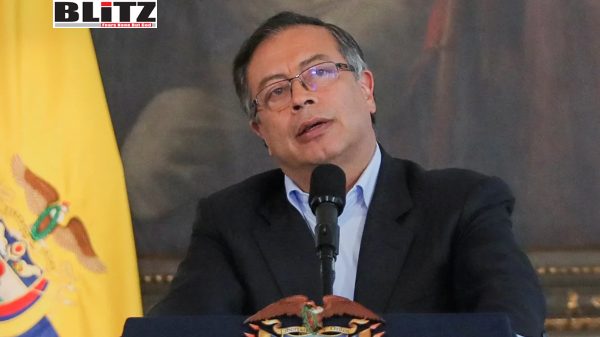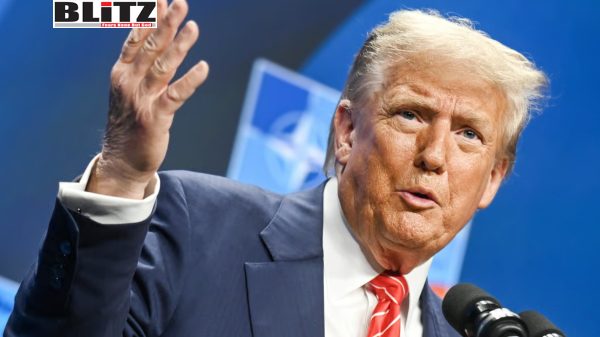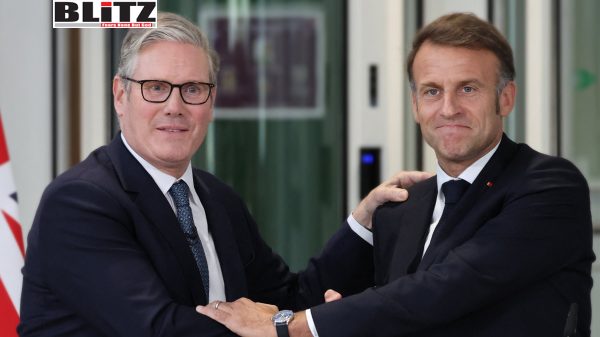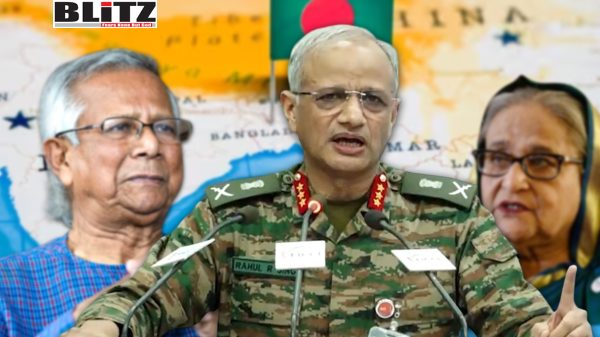India hopes for strategic gains from Trump’s presidential comeback
- Update Time : Saturday, November 9, 2024
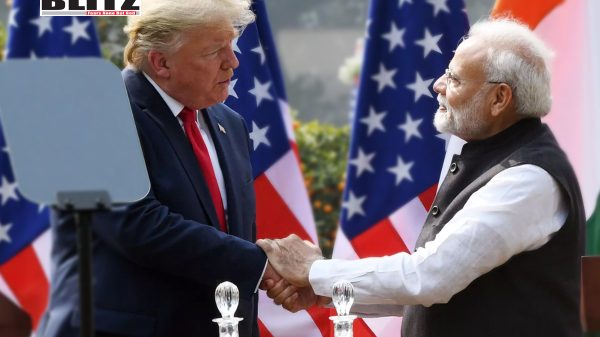
As Donald Trump celebrates his Nov. 5 victory in the US presidential election, India is feeling the ripple effects of his success. Known for his unconventional diplomacy and unpredictability, Trump’s return puts India at a unique crossroads. Prime Minister Narendra Modi’s government, under pressure over alleged targeting of Khalistan separatists abroad and its close ties with Russia, hopes a Trump presidency could bring relief. With Trump in office, India is cautiously optimistic about reduced scrutiny on these issues and potential boosts in US-India cooperation.
India’s relationship with Trump has always been unique, grounded in a blend of pragmatism and nationalism on both sides. Trump’s previous term saw him embrace Prime Minister Modi with notable enthusiasm, exemplified by events like the “Howdy Modi” rally in Houston in 2019. Yet, that embrace was grounded not in ideological kinship but in the strategic convergence of interests-particularly around defense, technology, and a shared skepticism of China’s growing influence.
Unlike his predecessor Joe Biden, Trump has historically been less critical of human rights issues and more inclined to prioritize transactional gains. Modi’s administration hopes Trump will brush aside allegations raised by Canada and the US regarding India’s involvement in plots to target Khalistan separatists living in North America. For India, a Trump administration’s indifference to these claims would defuse an issue that has complicated its foreign relations.
While Modi congratulated Trump with a message on X (formerly Twitter), expressing eagerness to “renew our collaboration,” he also displayed measured caution throughout the election cycle. Learning from the past, Modi’s administration avoided overt expressions of support for any particular candidate, an approach informed by the backlash following Modi’s implicit endorsement of Trump in 2019. In a nail-biting race where current VP Kamala Harris was the main opponent, Modi’s strategic restraint may have been key to preserving India’s relationship with both US parties.
A key reason for India’s hopefulness is Trump’s disdain for Canada’s Prime Minister Justin Trudeau, with whom he has clashed repeatedly. Trump’s public discontent with Trudeau was displayed during the 2018 G7 summit, where he left early, refusing to sign the joint declaration. This history suggests that Trump may be far more willing to ignore, or even undermine, Trudeau’s recent allegations about India’s involvement in plots against Khalistan separatists.
Under Trump, India anticipates a relaxation in pressure on these politically sensitive issues, which would allow Modi’s administration to sidestep potentially embarrassing accusations of espionage or political interference. For Modi, having a president in the White House who isn’t inclined to publicly chastise India over Khalistan separatists is a welcomed prospect.
Another area where a Trump administration may bring India relief is in its relationship with Russia. India’s close ties with Russia, cemented over decades of defense collaboration and economic partnership, have recently drawn scrutiny from the Biden administration amid the ongoing Russia-Ukraine conflict. However, Trump’s rhetoric has consistently downplayed the significance of the Ukraine conflict, and he has hinted at pulling back from the proxy war altogether, focusing instead on domestic priorities.
For Modi, Trump’s possible pivot away from the Ukraine issue and a potentially warmer stance toward Russia could reduce the diplomatic strain of balancing India’s partnership with Moscow against its growing US alliance. This shift could also alleviate concerns about sanctions on Russian arms supplies-a crucial source for India’s defense capabilities. By easing the pressure on New Delhi to “choose sides,” a Trump presidency may provide India with the strategic flexibility it needs to maintain its long-standing relationship with Russia.
India’s doctrine of “multi-alignment” is at the core of its foreign policy strategy. Rather than aligning with any single power bloc, India’s goal is to engage with diverse partners based on specific mutual interests. Modi and Trump’s shared pragmatic worldview reinforces this alignment. Unlike traditional alliances grounded in ideological conformity, India and Trump’s US would focus on concrete, interest-driven collaborations-especially in defense, technology, and energy.
Trump’s brand of nationalism, known for its “America First” stance, resonates with Modi’s own approach, which places a strong emphasis on India’s national interests. For both leaders, nativism-albeit in distinct forms-is more than just rhetoric. In the US, it has emphasized curbing immigration and favoring native workers. In India, nativism has taken the form of emphasizing Hindu cultural values, as seen in the BJP’s push to promote Hindu identity as central to Indian identity. While Modi’s version of nativism has sometimes drawn criticism, it aligns with Trump’s populist message, allowing both leaders to project an image of defending their respective nations against external influences.
Under Trump’s leadership, the US-India partnership could expand in significant areas. The main drivers of this relationship include counterbalancing China’s growing assertiveness, advancing technological innovation, and deepening economic ties. India has already been a significant beneficiary of US defense technology transfers, with both countries signing key agreements to facilitate the exchange of defense intelligence and equipment.
Additionally, Trump’s possible pivot away from aggressive global interventions could benefit India. As Trump seeks to reduce US military commitments overseas, India may find itself with more space to navigate regional security issues on its own terms, particularly in the Indo-Pacific, where China’s influence has become a pressing concern.
For India, managing its relationship with China remains a top priority. The ongoing border tensions between the two countries necessitate a strong deterrence strategy. A Trump administration is likely to support India’s stance against China, given Trump’s vocal opposition to China’s economic policies and his aim to curb its regional influence. With Trump back in power, India could find a more receptive audience in Washington for its concerns about Chinese aggression and receive more substantial support in building a resilient Indo-Pacific coalition.
However, India’s approach will remain cautious. New Delhi understands that the US is not its neighbor, nor does it share the deep-seated historical and geographical links India has with countries like Russia or even China. Political analyst Yogendra Yadav captured this sentiment, likening the US election to “a wedding in the big landlord’s family” where India is an “inconsequential outsider.” This viewpoint reflects India’s realistic assessment of its own standing, recognizing that while a US president may influence India’s path, it cannot fundamentally change it.
India stands to gain from a Trump presidency by focusing on the transactional benefits of their relationship. Trump’s pro-business policies could open avenues for Indian firms in sectors like IT and pharmaceuticals, boosting economic ties between the two nations. Additionally, Trump’s affinity for India’s Hindu nationalist community enhances Modi’s domestic political support among Indian-Americans, a growing and influential demographic in the US.
While Trump’s leadership style may be polarizing, New Delhi’s pragmatism will enable it to navigate this unpredictability effectively. Trump’s presidency offers India opportunities to strengthen its strategic autonomy, deepen bilateral ties, and advance its regional objectives.
In a rapidly transforming global order, India’s approach of pursuing its interests over airy alliances positions it well to adapt to any shifts a Trump presidency may bring. As India reinforces its multi-alignment strategy, it remains committed to navigating the complexities of international relations with pragmatism and purpose.
Please follow Blitz on Google News Channel



